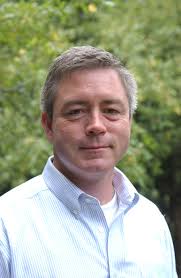 This moment in our history may seem like the most divisive of our lives. We seem unable to agree on fundamental values and facts. The meaning of citizenship and identity seems to be at risk, as if it’s all about to come apart at the seams. But let’s not forget that the American republic has gone through far worse and survived. At the time of the Civil War, as Abraham Lincoln rightly noted, the very idea of government “of the people, by the people, for the people” might well have been extinguished by hatred and violence. This was our democracy’s most profound crisis, but it was certainly neither the first, nor the last.
This moment in our history may seem like the most divisive of our lives. We seem unable to agree on fundamental values and facts. The meaning of citizenship and identity seems to be at risk, as if it’s all about to come apart at the seams. But let’s not forget that the American republic has gone through far worse and survived. At the time of the Civil War, as Abraham Lincoln rightly noted, the very idea of government “of the people, by the people, for the people” might well have been extinguished by hatred and violence. This was our democracy’s most profound crisis, but it was certainly neither the first, nor the last.
Today, it is difficult to imagine how to even begin to find commonality across vast differences. Thinking about the role that higher education has played and can play in our society may be a place to start.
Human value
Many of America’s colleges were founded during the Civil War era. Their notion of liberal education was rooted in the meaning shared by the words “liberal” and “liberty”—that is, education for free people in a free society, who are empowered to govern themselves, on the premise that the new democratic polity being created required broadly educated citizen-leaders.
We need leaders who are ready to question assumptions and put aside biases and fears.
New York’s St. Lawrence University, where I work, was founded in 1856 on the eve of the Civil War—a moment when it was clear that the American experiment was in mortal peril. I have often wondered why those who decided then to build such institutions would have chosen to take that risk—to invest their careers, their fortunes and their lives in projects meant to improve a society that seemed uncertain to last.
They took a leap of faith because they subscribed to a single principle that lies at the root of both American political culture and the ideals of liberal arts education: that every human being has value, and has a mind that is worthy of learning for its own sake and for the betterment of society. They believed that this was not just a good idea, but the very best idea that human beings had ever had. And it justified their commitment to the future at a time of uncertainty.
Thankfully, they were right, and the colleges and universities they created grew and thrived along with the new nation.
A liberal arts education was meant to benefit not just the individual, but also the whole of society by teaching the methods of evidence-based inquiry and argumentation. By providing a model for the rigorous exchange of ideas, liberal arts colleges were created to be what they remain today—the incubators of democratic citizenship and the training grounds for civic discourse.
This does not mean that liberal arts college campuses have been places where any opinion can be voiced without consequence or with an assumption that all perspectives are equally legitimate, irrespective of evidence. But neither are they the close-minded, ideological echo chambers that they are sometimes depicted to be.
More relevant than ever
Some say the liberal arts are impractical in 2019. But we need them more than ever. Our democracy requires citizens who are goal-oriented and self-aware. They must assert their values and also be able to listen and learn. We need leaders who are ready to question assumptions, put aside biases and fears, take intellectual risks, and embrace the complexity of the world.
Far from being irrelevant today, the tradition of liberal education offers hope for productive civic discourse as an alternative to simplistic, dehumanizing and close-minded thinking. Like the American experiment itself, it does not promise perfection, but instead holds out the possibility of something better just over the horizon, and a path to get there.
Karl Schonberg is vice president and dean for academic affairs at St. Lawrence University in Canton, New York.





